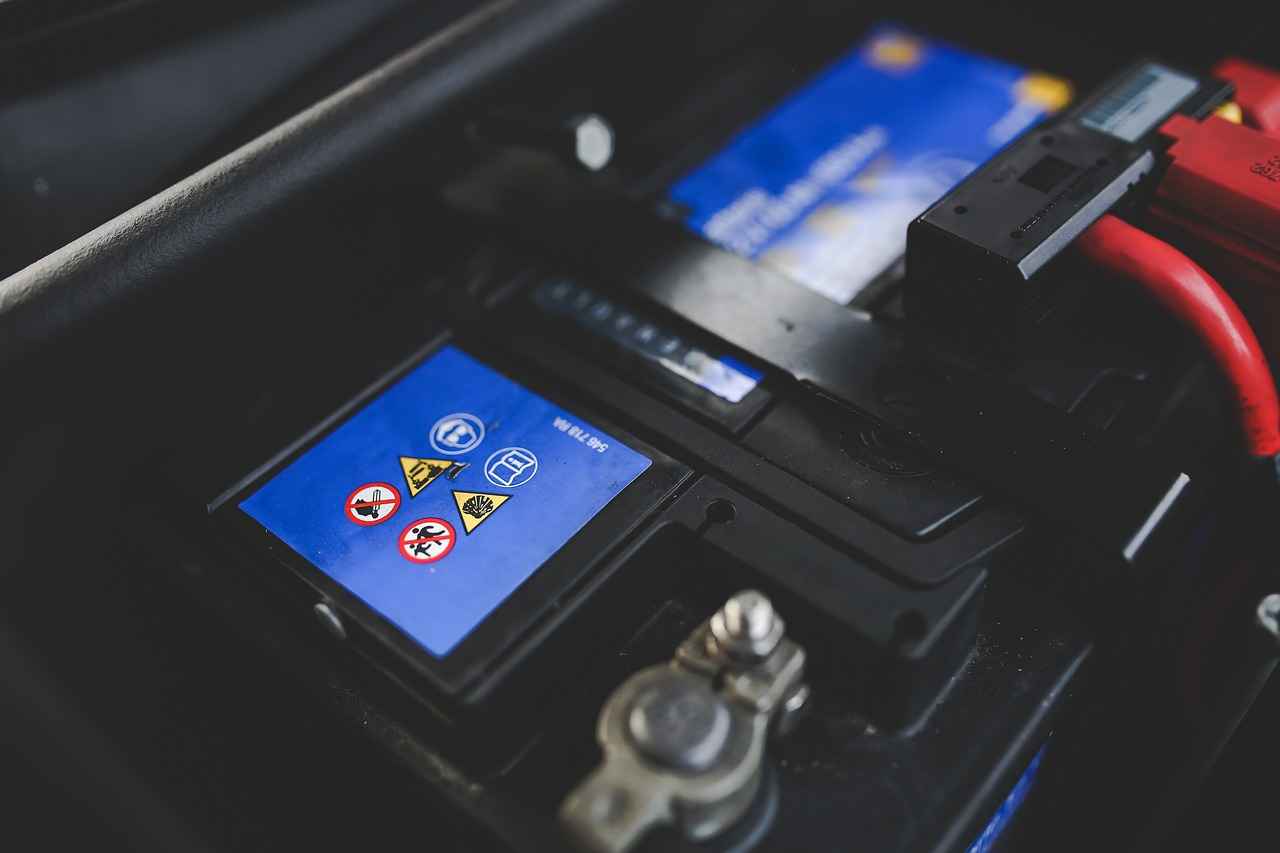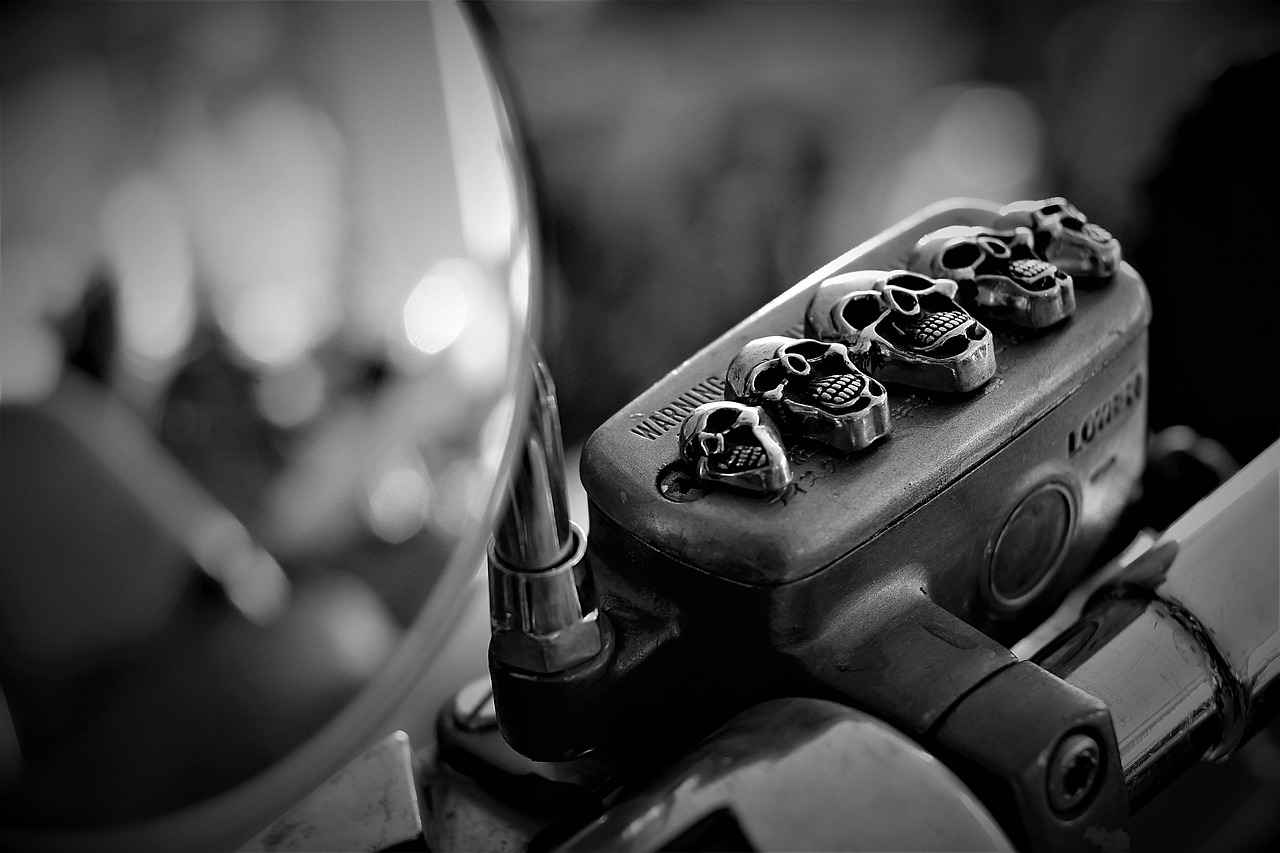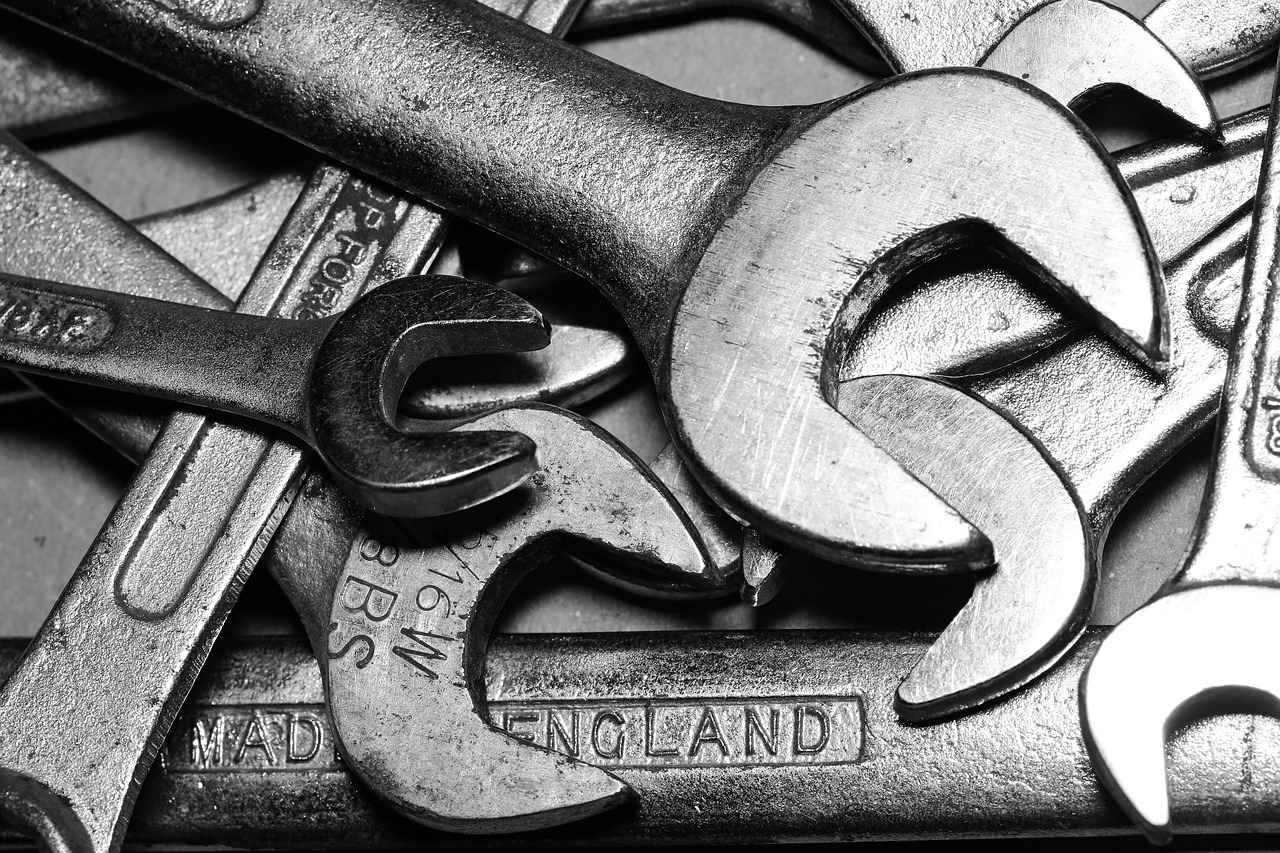The lifespan of a Honda Accord battery is an essential consideration for every owner, as it directly impacts the vehicle’s reliability and performance. Understanding how long these batteries typically last, the factors that influence their longevity, and the best practices for maintenance can significantly enhance your driving experience. This article delves into the average lifespan of a Honda Accord battery, the elements that affect its durability, and practical tips for extending its life.
The average lifespan of a Honda Accord battery generally ranges from three to five years. However, this can vary based on several factors, including driving habits, climate conditions, and the overall health of the vehicle’s electrical system.
Several key factors can significantly impact the longevity of your Honda Accord battery:
- Driving Habits: Frequent short trips may prevent the battery from fully charging, which can lead to a shortened lifespan.
- Climate: Extreme temperatures can affect battery performance; hot weather accelerates corrosion, while cold weather can diminish battery capacity.
- Electrical Load: A high demand for electrical power from accessories can strain the battery, leading to premature failure.
Understanding your driving patterns is crucial. For instance, if you often take short trips, the battery may not have enough time to recharge, which can lead to sulfation—a common issue that reduces battery capacity over time.
Climate plays a significant role in battery health. In regions with hot temperatures, the heat can cause battery fluid to evaporate, leading to internal damage. Conversely, cold weather can increase the battery’s resistance, making it harder for the engine to start.
The increasing number of electronic devices in modern vehicles means that the electrical load on the battery is greater than ever. Using multiple accessories simultaneously can drain the battery faster, necessitating more frequent replacements.
Recognizing the early signs of battery deterioration can save you from unexpected breakdowns. Common indicators include:
- Slow Engine Cranking: If the engine takes longer than usual to start, it may be a sign of battery weakness.
- Dimming Headlights: If your headlights appear dimmer than usual, it could indicate that the battery is losing its charge.
Implementing regular maintenance practices can significantly prolong the life of your battery. Here are some effective strategies:
- Routine Checks: Regularly inspect battery terminals for corrosion and ensure connections are secure.
- Maintain Cleanliness: Keeping the battery clean can prevent buildup that could impede performance.
- Regular Testing: Testing your battery at least once a year can help identify potential issues early.
It is crucial to know when to replace your battery to avoid unexpected failures. Most experts recommend considering a replacement every three to five years, depending on usage and conditions.
When selecting a replacement battery, consider factors such as compatibility with your vehicle, warranty terms, and the reputation of the brand. Opting for a high-quality battery can enhance performance and longevity.
Proper disposal of an old battery is vital for environmental safety. Many auto parts stores and recycling centers offer battery recycling services, ensuring that harmful materials are handled correctly.
Understanding the costs involved in replacing your Honda Accord battery can help you budget effectively. Prices can vary based on battery type, brand, and labor charges. It is advisable to compare prices to find the best deal.
Many manufacturers provide warranties for their batteries, offering peace of mind and financial protection against premature failure. Always review warranty details before making a purchase to ensure you are covered.

What Is the Average Lifespan of a Honda Accord Battery?
The lifespan of a Honda Accord battery is a crucial aspect for any owner to consider, as it directly impacts the vehicle’s performance and reliability. Understanding how long these batteries typically last and the factors influencing their longevity can help you make informed decisions regarding maintenance and replacement.
The average lifespan of a Honda Accord battery typically ranges from three to five years. However, this duration can vary significantly based on several factors, including driving habits, environmental conditions, and the overall health of the vehicle’s electrical system.
Several key factors can impact the longevity of your Honda Accord battery:
- Driving Habits: Frequent short trips can prevent the battery from fully charging, leading to a shorter lifespan.
- Climate: Extreme temperatures, whether hot or cold, can adversely affect battery performance. High heat can cause corrosion, while cold weather can reduce capacity.
- Electrical Load: The more electronic devices and accessories you utilize, the greater the strain on the battery, potentially shortening its lifespan.
Understanding your driving patterns is essential for battery maintenance. If you often take short trips, your battery may not have enough time to recharge fully. This can lead to a buildup of sulfation, which can diminish battery performance over time. To optimize battery health, consider longer drives occasionally to allow for a complete charge.
Climate is a significant factor in battery longevity. In hot climates, batteries tend to suffer from increased corrosion and fluid evaporation, which can lead to premature failure. Conversely, in cold climates, a battery’s capacity can be reduced, making it harder to start the vehicle. Monitoring these environmental factors can help you anticipate potential issues and take preventive measures.
The demand placed on your battery by various electrical components can greatly influence its lifespan. Modern vehicles, including the Honda Accord, come equipped with numerous electronic devices, such as infotainment systems, headlights, and climate control systems. The more you use these accessories, the more strain is placed on the battery. Implementing good practices, such as turning off unnecessary devices when the engine is off, can help mitigate this issue.
Recognizing the early signs of battery deterioration is crucial for preventing unexpected breakdowns. Common symptoms include:
- Slow Engine Cranking: If your engine takes longer to start than usual, it may indicate a weakening battery.
- Dimming Headlights: If your headlights appear dimmer, especially when idling, it could be a sign that your battery is losing power.
Implementing regular maintenance practices can significantly extend the life of your Honda Accord battery. Here are some tips:
- Routine Checks: Regularly inspect the battery terminals for corrosion and ensure all connections are secure.
- Battery Cleaning: Keeping the terminals clean can help prevent buildup that could lead to poor performance.
- Regular Testing: Have your battery tested periodically to identify potential issues early.
Most experts recommend replacing your battery every three to five years, depending on its performance and the factors mentioned above. Keeping track of your battery’s age and performance can help you avoid unexpected failures.
When it comes time to replace your battery, consider factors such as compatibility, warranty, and brand reputation. Choosing a high-quality battery can ensure long-lasting performance and peace of mind.
Proper disposal of an old battery is essential for environmental safety. Many auto parts stores and recycling centers offer battery recycling services, so be sure to take advantage of these options when it’s time for a replacement.
Understanding the costs involved in replacing your Honda Accord battery can help you budget effectively. Prices can vary based on battery type, brand, and labor charges, so it’s wise to compare options to find the best deal.
Many battery manufacturers offer warranties that can provide financial protection against premature failure. Always check warranty details before making a purchase to ensure you are getting the best value.

What Factors Influence Battery Life?
The longevity of a Honda Accord battery is influenced by a myriad of factors. Understanding these elements can help you take better care of your vehicle and ensure that your battery lasts as long as possible. Below, we explore the primary factors that affect battery life.
Several key factors can impact the longevity of a Honda Accord battery, including:
- Driving Habits: Your driving patterns significantly influence battery health. Frequent short trips can prevent the battery from reaching a full charge, which can lead to sulfation—a condition where lead sulfate crystals form on the battery plates, reducing its capacity over time.
- Climate: Extreme weather conditions can take a toll on battery performance. In hot climates, batteries can experience accelerated corrosion, while in cold climates, the battery’s capacity may diminish, making it harder to start the engine.
- Electrical System Demands: Modern vehicles, including the Honda Accord, come equipped with numerous electronic devices such as infotainment systems, GPS, and advanced safety features. The more accessories you use, the greater the strain on the battery, which can shorten its lifespan if not managed properly.
Understanding your driving habits is crucial for maintaining your battery. For instance, if you primarily take short trips, the battery may not have enough time to recharge fully. This can lead to a cycle of undercharging, which ultimately shortens battery life. Aim for longer drives occasionally to allow the battery to recharge adequately.
The impact of climate on battery performance cannot be overstated. High temperatures can lead to increased evaporation of the electrolyte fluid inside the battery, resulting in reduced capacity and a shorter lifespan. Conversely, extremely cold temperatures can cause the battery to lose its charge more quickly, making it less reliable. If you live in a region with extreme weather conditions, consider investing in a battery designed to withstand such environments.
The electrical load on your Honda Accord can significantly affect battery longevity. If you frequently use high-demand features like heated seats, air conditioning, or advanced audio systems, your battery may struggle to keep up. To mitigate this, ensure that you turn off unnecessary electronics when the engine is not running, and consider regular battery checks to monitor its health.
Recognizing the early signs of battery deterioration is essential for preventing unexpected failures. Common symptoms include:
- Slow engine cranking
- Dimming headlights
- Frequent need for jump-starts
If you notice any of these signs, it may be time to have your battery tested or replaced.
Implementing regular maintenance and adopting good driving habits can significantly extend the life of your Honda Accord battery. Simple practices such as cleaning battery terminals, ensuring secure connections, and scheduling routine checks can prevent premature failure and enhance performance.
Regular battery testing can identify potential issues before they escalate into serious problems. Many auto service centers offer free battery testing, which can be a proactive measure to ensure your Honda Accord remains reliable.
How Do Driving Habits Affect Battery Longevity?
Understanding how your driving habits affect the longevity of your vehicle’s battery is crucial for maintaining optimal performance. Many drivers may not realize that their daily routines can significantly impact battery health. This section delves into the relationship between driving patterns and battery lifespan, emphasizing the importance of awareness in battery maintenance.
One of the most significant factors affecting battery longevity is the frequency of short trips. When you take frequent short trips, your vehicle may not have enough time to fully recharge the battery. This incomplete charging cycle can lead to a gradual decline in battery capacity over time. Understanding this pattern is essential for effective battery maintenance.
The battery in your Honda Accord needs a certain amount of time to recharge after starting the engine. Short trips often don’t allow the alternator sufficient time to replenish the energy used during startup. As a result, the battery may remain in a partially charged state, which can lead to increased sulfation and ultimately reduce its lifespan.
To counteract the negative effects of short trips, consider incorporating longer drives into your routine. Longer journeys allow the battery to fully recharge, helping to maintain its health and longevity. If your daily commute is primarily short, try to include a longer drive at least once a week. This practice can significantly enhance the battery’s performance.
Being aware of your driving habits is the first step toward better battery maintenance. Keep track of how often you take short trips versus longer drives. If you notice a pattern of frequent short trips, consider adjusting your schedule to include longer drives or even combining errands into a single trip. By modifying your driving habits, you can help extend the lifespan of your Honda Accord battery.
- Avoiding Frequent Engine Starts: Each time you start your vehicle, it draws power from the battery. Frequent starts can wear down the battery faster.
- Minimizing Use of Electrical Accessories: Using multiple electronic devices while driving can increase the load on the battery, leading to quicker depletion.
- Regularly Checking Battery Health: Keeping an eye on your battery’s condition can help you catch potential issues before they escalate.
In summary, understanding how your driving habits affect battery longevity is crucial for maintaining the health of your Honda Accord battery. Frequent short trips can prevent the battery from fully charging, leading to a shorter lifespan. By being mindful of your driving patterns and incorporating longer drives into your routine, you can significantly enhance the performance and longevity of your vehicle’s battery.
What Role Does Climate Play?
Understanding the impact of climate on battery performance is crucial for Honda Accord owners. The lifespan and functionality of a battery can be significantly influenced by the surrounding environmental conditions. This section will delve into how both extreme heat and cold can affect your vehicle’s battery.
In regions where temperatures soar, the heat can lead to accelerated corrosion of battery components. High temperatures can cause the electrolyte solution within the battery to evaporate, leading to a condition known as sulfation. This process occurs when lead sulfate crystals form on the battery plates, diminishing the battery’s ability to hold a charge. Additionally, the increased heat can cause the battery fluid to expand, potentially leading to leaks or ruptures.
Conversely, cold weather can have a detrimental impact on battery performance as well. Low temperatures can reduce the chemical reactions within the battery, resulting in a decrease in capacity. This means that even a fully charged battery may struggle to provide enough power to start the engine in frigid conditions. In extreme cold, the battery’s ability to deliver current can drop by as much as 40%.
Frequent fluctuations between hot and cold can further exacerbate battery wear and tear. The constant expansion and contraction of battery materials can lead to physical damage, making the battery more susceptible to failure. Regularly monitoring the temperature in which your Honda Accord operates can help in taking preventive measures.
- Park in Shade: Whenever possible, park your vehicle in shaded areas during hot weather to minimize heat exposure.
- Use Insulation: Consider using battery insulation kits designed to protect against extreme temperatures.
- Regular Maintenance: Schedule routine checks to clean battery terminals and ensure proper connections, which can help in maintaining performance.
- Monitor Battery Health: Regular testing can help identify any potential issues before they escalate, especially before seasonal temperature changes.
Being vigilant about the signs of battery deterioration can save you from unexpected breakdowns. Common indicators of temperature-related battery issues include:
- Slow Engine Cranking: If your engine is slow to start, it may be a sign that the battery is struggling due to temperature effects.
- Dimming Headlights: If your headlights appear dim or flicker, it could indicate that the battery is not providing sufficient power.
- Swollen Battery Case: Extreme heat can cause the battery case to swell, which is a clear sign that the battery is compromised.
In summary, understanding the role of climate in battery performance is essential for maintaining the longevity and reliability of your Honda Accord’s battery. By taking proactive measures and being aware of the signs of battery issues, you can significantly enhance your vehicle’s performance and reduce the likelihood of unexpected failures.
How Does Electrical Load Impact Battery Life?
The battery in your Honda Accord is a critical component that powers various electrical systems, from starting the engine to running accessories. Understanding how electrical load impacts battery life is essential for maintaining optimal performance and ensuring longevity. In this section, we will delve into the intricacies of electrical load and its effects on your vehicle’s battery.
Electrical load refers to the total amount of power consumed by all electrical devices in your vehicle at any given time. This includes essential systems like lights and the radio, as well as additional accessories such as GPS units, phone chargers, and heated seats. The more devices you use, the higher the electrical load on your battery.
When you operate multiple electronic devices simultaneously, your Honda Accord’s battery experiences greater strain. This increased demand can lead to:
- Faster Discharge Rates: The battery will deplete more quickly when subjected to high electrical loads, resulting in a reduced overall lifespan.
- Overheating: Excessive electrical load can cause the battery to overheat, leading to potential damage and decreased efficiency.
- Corrosion: Higher loads can accelerate the chemical reactions within the battery, leading to increased corrosion on terminals and connections.
Recognizing the signs of battery strain can help you take proactive measures to extend its life. Common indicators include:
- Dim Lights: If your headlights appear dimmer than usual, it may indicate that the battery is struggling to meet the electrical demands.
- Slow Engine Cranking: A sluggish start can be a sign that the battery is not providing sufficient power to the starter motor.
- Frequent Warning Lights: Dashboard warning lights related to the battery or electrical system can signal underlying issues.
To ensure your battery remains healthy despite the electrical load, consider the following tips:
- Limit Usage: Try to minimize the use of multiple electronic devices while driving, especially during short trips.
- Regular Maintenance: Keep your battery terminals clean and check connections regularly to prevent corrosion and ensure optimal performance.
- Invest in Quality Accessories: Use high-quality electronic devices and accessories that are designed to be compatible with your Honda Accord.
Regular monitoring of your battery’s health is crucial. You can:
- Conduct Routine Tests: Use a multimeter or have a professional perform battery tests to check the voltage and overall health.
- Keep Records: Maintain a log of your battery’s performance and any issues that arise, which can help in diagnosing problems early.
By understanding the impact of electrical load on your Honda Accord’s battery, you can take steps to mitigate strain and enhance its lifespan. Proper management of electrical demands, combined with routine maintenance, will ensure your battery remains reliable for years to come.
What Are Signs of a Deteriorating Battery?
Understanding the health of your vehicle’s battery is crucial for maintaining its performance and reliability. Recognizing the early signs of battery deterioration can help prevent unexpected failures and costly repairs. Here, we delve into the key indicators that your Honda Accord battery may be on the decline.
- Slow Engine Cranking: If you notice that your engine takes longer to start than usual, it could be a sign that your battery is losing its charge capacity.
- Dimming Headlights: When the headlights appear dimmer than normal, especially when idling, it may indicate that the battery is struggling to provide sufficient power.
- Electrical Issues: Problems with electronic accessories, such as power windows or dashboard lights flickering, can signal that your battery is failing to deliver consistent power.
- Unusual Smells: A rotten egg smell or any other unusual odor coming from the battery area may indicate a leak or corrosion, which can lead to battery failure.
- Corrosion on Terminals: If you see white, ashy deposits around the battery terminals, this corrosion can hinder the battery’s ability to function properly.
- Age of the Battery: If your battery is more than three years old, it’s wise to monitor its performance closely, as batteries typically begin to lose their effectiveness after this period.
Identifying these signs early can save you from being stranded and can prevent further damage to your vehicle’s electrical system. A failing battery can cause additional strain on the alternator and other components, leading to more extensive repairs and increased costs.
Regular maintenance and checks are essential to ensure your battery remains in good condition. Here are some practical tips:
- Visual Inspections: Regularly check for signs of corrosion and ensure that the battery terminals are clean and securely connected.
- Battery Testing: Have your battery tested at least once a year, particularly before extreme weather seasons. Many auto parts stores offer free testing services.
- Keep It Charged: If you frequently take short trips, consider using a battery maintainer or charger to keep your battery fully charged.
If you observe any of the symptoms mentioned above, it’s important to take action promptly. Here are steps you can take:
- Consult a Professional: If you’re unsure about the status of your battery, seek advice from a qualified mechanic or technician.
- Consider Replacement: If the battery is showing multiple signs of deterioration, it may be time to replace it to avoid further issues.
- Proper Disposal: When replacing your battery, ensure that the old one is disposed of properly at a recycling center or through a dealership.
By staying vigilant and proactive regarding your Honda Accord’s battery health, you can enhance the longevity of your vehicle and ensure a reliable driving experience.

How Can You Extend the Life of Your Honda Accord Battery?
Extending the life of your Honda Accord battery is crucial for maintaining the vehicle’s performance and reliability. A well-maintained battery not only ensures a smooth start but also prevents unexpected breakdowns. Here are some effective strategies to help you achieve this:
Routine maintenance is essential for prolonging the lifespan of your Honda Accord battery. Here are some key practices:
- Inspect Battery Terminals: Regularly check the battery terminals for corrosion. Clean any buildup using a mixture of baking soda and water, which can help improve connectivity.
- Secure Connections: Ensure that the battery cables are firmly connected. Loose connections can lead to power loss and reduced battery efficiency.
- Check Fluid Levels: If your battery is not maintenance-free, check the electrolyte levels and top them up with distilled water as needed.
Your driving habits significantly impact the battery’s health. Here are some tips to consider:
- Avoid Short Trips: Frequent short trips prevent the battery from fully charging. Try to combine errands into one longer trip to allow the battery to recharge adequately.
- Turn Off Accessories: Before turning off the engine, make sure all electrical accessories, such as lights and air conditioning, are turned off. This reduces unnecessary battery drain.
- Limit Idling: Extended idling can drain the battery. If you find yourself waiting for long periods, consider turning off the engine.
Climate plays a significant role in battery performance. Here’s how:
- Hot Weather: High temperatures can accelerate the chemical reactions within the battery, leading to increased corrosion. Park in shaded areas when possible to mitigate heat exposure.
- Cold Weather: Cold temperatures can reduce battery capacity, making it harder for the engine to start. Consider using a battery blanket or parking in a garage during winter months.
Regular testing of your battery can help identify potential issues before they escalate:
- Use a Multimeter: Testing the voltage with a multimeter can give you an idea of the battery’s health. A fully charged battery should read around 12.6 volts.
- Professional Testing: Consider having your battery tested by a professional at least once a year, especially before extreme weather seasons.
Even with the best care, batteries have a limited lifespan. Most Honda Accord batteries last between three to five years. Be aware of the following signs that indicate it may be time for a replacement:
- Slow Engine Cranking: If your engine takes longer to start than usual, it could be a sign of a weakening battery.
- Dimming Headlights: If your headlights dim while idling, it may indicate that the battery is struggling to provide sufficient power.
- Check Engine Light: If this light illuminates, it could be related to battery issues among other potential problems.
By implementing regular maintenance and adopting good driving habits, you can significantly extend the life of your Honda Accord battery. This not only enhances your vehicle’s performance but also saves you money in the long run. Remember, a little care goes a long way in ensuring that your battery remains reliable for years to come.
What Maintenance Practices Should You Follow?
Maintaining your Honda Accord battery is crucial for ensuring its longevity and optimal performance. Regular maintenance practices can significantly reduce the risk of unexpected battery failures and enhance the overall efficiency of your vehicle. Here are some essential maintenance practices to consider:
- Routine Inspections: Regularly check your battery for any signs of wear or damage. Look for corrosion around the terminals, which can inhibit performance. A clean battery is a healthy battery.
- Cleaning Terminals: Cleaning the battery terminals is a simple yet effective way to maintain your battery. Use a mixture of baking soda and water to clean any corrosion. Ensure that the terminals are dry before reconnecting them.
- Secure Connections: Ensure that the battery cables are tightly connected. Loose connections can lead to poor performance and unnecessary strain on the battery. Check the clamps and cables for any signs of fraying or damage.
- Testing Voltage: Regularly test the battery voltage to ensure it is holding a charge. A multimeter can help you check the voltage. A reading below 12.4 volts indicates that the battery may need to be charged or replaced.
- Battery Load Testing: Conduct a load test to evaluate the battery’s ability to hold a charge under load. This test can help identify weak batteries that may fail unexpectedly.
- Check Fluid Levels: If your battery is not maintenance-free, check the electrolyte levels regularly. Top off with distilled water if necessary, but avoid overfilling.
- Avoid Short Trips: Frequent short trips can lead to incomplete charging cycles. Whenever possible, take longer drives to allow the battery to fully recharge.
- Limit Electrical Load: Be mindful of the electrical load on your battery. Excessive use of electronic devices, especially when the engine is off, can drain the battery quickly.
By implementing these maintenance practices, you can significantly enhance the lifespan of your Honda Accord battery. Routine checks, including cleaning terminals and ensuring secure connections, can prevent premature battery failure and enhance performance. Moreover, regular testing can identify potential issues before they escalate, ensuring that your vehicle remains reliable and ready for the road.
In addition to these practices, consider the environment in which you drive. Extreme temperatures can adversely affect battery performance. If you live in an area with extreme weather conditions, extra precautions may be necessary to protect your battery. Store your vehicle in a garage during extreme cold or heat when possible, and consider using a battery warmer in winter months.
Lastly, remember to consult your vehicle’s manual for any specific maintenance recommendations related to your Honda Accord battery. Staying proactive with these maintenance practices will not only extend the life of your battery but also contribute to the overall reliability and performance of your vehicle.
Why Is Regular Testing Important?
Regular testing of your Honda Accord battery is a crucial aspect of vehicle maintenance that cannot be overlooked. By conducting routine checks, you can identify potential issues before they escalate into serious problems. This proactive approach not only ensures that your vehicle remains reliable but also contributes to the overall longevity of the battery itself.
- Early Detection of Issues: Regular testing allows you to spot signs of wear and tear early on. This includes issues like corrosion on terminals or a decline in voltage, which can indicate that your battery is nearing the end of its lifespan.
- Improved Performance: A well-maintained battery performs better, providing consistent power to start your engine and run electrical accessories. Testing ensures that your battery is functioning at its optimal level.
- Cost Savings: By identifying problems early, you can avoid the high costs associated with emergency repairs or battery replacements. Regular testing can save you money in the long run.
Experts recommend testing your Honda Accord battery at least twice a year. However, if you frequently drive in extreme weather conditions or take short trips, you might want to consider more frequent checks. During a battery test, a technician will typically check the voltage, inspect the terminals, and assess the overall condition of the battery.
Battery testing can be done using various tools, including:
- Multimeter: This device measures the voltage of the battery and can help identify problems.
- Load Tester: This tool simulates the load your battery would experience when starting the engine, providing a more accurate assessment of its condition.
- Conductance Tester: This advanced tool evaluates the battery’s ability to conduct electricity and can predict its remaining lifespan.
There are several indicators that your Honda Accord battery may need testing:
- Slow Engine Cranking: If your engine is slow to start, it may be a sign that your battery is losing its charge.
- Dim Lights: Dimming headlights or interior lights can indicate that your battery is struggling to provide adequate power.
- Check Engine Light: Sometimes, the check engine light can illuminate due to battery issues, prompting the need for a test.
If your battery fails a test, it’s essential to take immediate action. Here are some steps you can follow:
- Recharge the Battery: Sometimes, a simple recharge can restore battery function.
- Clean the Terminals: Corroded terminals can impede performance. Cleaning them can improve connectivity.
- Replace the Battery: If the battery is old or significantly degraded, consider replacing it to avoid unexpected failures.
In conclusion, regular testing of your Honda Accord battery is vital for maintaining its reliability and performance. By being proactive and addressing potential issues early, you can ensure that your vehicle remains dependable for years to come.

When Should You Replace Your Honda Accord Battery?
When it comes to maintaining your Honda Accord, understanding when to replace your battery is essential for ensuring reliable performance. A well-functioning battery is crucial for starting your vehicle and powering its electrical components. Knowing the signs that indicate a battery replacement is necessary can save you from unexpected breakdowns and costly repairs.
Experts typically recommend replacing your Honda Accord battery every three to five years. However, this timeline can vary based on several factors, including driving habits, climate conditions, and the overall health of the vehicle’s electrical system.
- Slow Engine Cranking: If your engine takes longer to start than usual, it might be time to consider a battery replacement.
- Dimming Headlights: Noticeably dim or flickering headlights can indicate that your battery is struggling to provide adequate power.
- Warning Lights: Dashboard warning lights related to the battery or charging system should not be ignored.
- Corrosion: Build-up of corrosion on battery terminals can affect performance and is a sign that your battery may need replacing.
The lifespan of your Honda Accord battery can be significantly impacted by environmental factors. Extreme temperatures, whether hot or cold, can affect battery performance. In hot climates, the heat can accelerate corrosion and lead to battery failure, while cold weather can reduce the battery’s capacity to hold a charge.
Regular maintenance plays a vital role in extending the life of your battery. Routine checks, such as cleaning the terminals and ensuring secure connections, can help prevent premature battery failure. Additionally, testing your battery periodically can identify potential issues before they become serious problems, ensuring your Honda Accord remains reliable.
When it comes time to replace your battery, choosing the right replacement option is crucial. Consider factors such as compatibility with your Honda Accord, warranty options, and brand reputation. A high-quality battery can provide better performance and longevity, making it a worthwhile investment.
Proper disposal of an old battery is essential for environmental safety. Many auto parts stores and recycling centers offer battery recycling services, ensuring that harmful chemicals do not enter landfills.
Understanding the costs involved in replacing your Honda Accord battery can help you budget accordingly. Replacement costs can vary based on battery type, brand, and labor charges. It’s important to compare prices and consider warranties that can provide peace of mind against premature failure.
In summary, being proactive about your Honda Accord’s battery health can prevent unexpected issues. Regular maintenance, awareness of signs of deterioration, and timely replacement are key to ensuring your vehicle operates smoothly. Always consult with a professional mechanic if you have concerns about your battery’s performance.
What Are the Best Replacement Options?
When it comes to replacing your Honda Accord battery, making the right choice is crucial for ensuring optimal performance and longevity. Choosing the right replacement battery involves several key considerations that can significantly affect your vehicle’s reliability.
One of the most critical factors to consider is compatibility. Not all batteries are suitable for every vehicle model. Always refer to your owner’s manual or consult with a professional to identify the correct specifications for your Honda Accord. Using a battery that fits perfectly ensures that it operates efficiently and minimizes the risk of damage to your vehicle’s electrical system.
Another essential aspect is the warranty offered by the manufacturer. A longer warranty period often indicates that the manufacturer has confidence in their product’s durability. Look for batteries that come with at least a three to five-year warranty. This not only provides peace of mind but also protects your investment in case of early failure.
Brand reputation is another factor that should not be overlooked. Established brands with a history of reliability and customer satisfaction are generally a safer choice. Research customer reviews and ratings to gauge the performance and longevity of different battery brands. Opting for a reputable brand can often result in better quality and performance.
- Lead-Acid Batteries: These are the most common type and are generally more affordable. They work well for standard driving conditions but may require more maintenance.
- AGM (Absorbent Glass Mat) Batteries: AGM batteries are more advanced and provide better performance, especially in extreme conditions. They are often more expensive but offer longer lifespans.
- Li-ion Batteries: While typically used in hybrid or electric vehicles, some modern vehicles may support Li-ion batteries. They offer excellent performance but at a higher cost.
Once you’ve selected the right battery, proper installation is vital. Improper installation can lead to a host of problems, including electrical issues and reduced battery life. If you’re not comfortable with DIY installation, it’s advisable to seek professional help to ensure everything is set up correctly.
Some batteries come with additional features such as built-in monitoring systems that can alert you to issues before they become serious problems. These features can enhance the overall performance and longevity of your battery.
In summary, making an informed decision about your Honda Accord battery replacement involves considering compatibility, warranty, brand reputation, and additional features. By taking the time to evaluate these factors, you can ensure that your vehicle remains reliable and performs optimally for years to come.
How Do You Properly Dispose of a Car Battery?
When it comes to maintaining your vehicle, understanding how to properly dispose of a car battery is crucial not only for your safety but also for the environment. Car batteries contain hazardous materials that can pose significant risks if not disposed of correctly. This guide will provide you with essential information on the importance of proper disposal, the available recycling options, and the steps you can take to ensure you are doing your part in protecting the planet.
The disposal of car batteries is a matter of environmental safety. Lead-acid batteries, commonly used in vehicles, contain toxic substances such as lead and sulfuric acid. If these materials leak into the soil or waterways, they can cause severe environmental damage and health risks. By ensuring that batteries are disposed of correctly, we can prevent contamination and promote recycling.
Improper disposal methods, such as throwing batteries in the trash, can lead to potential hazards. These include:
- Soil Contamination: Lead and acid can seep into the ground, affecting plant life and local water supplies.
- Health Risks: Exposure to toxic materials can lead to serious health issues for humans and wildlife.
- Fines and Legal Issues: Many states have laws against improper battery disposal, and violators may face hefty fines.
Fortunately, there are many options available for recycling old car batteries:
- Auto Parts Stores: Many local auto parts stores offer battery recycling services. They often have designated drop-off areas and may even provide incentives for returning your old battery.
- Recycling Centers: Check for nearby recycling centers that accept car batteries. These facilities are equipped to handle hazardous materials safely.
- Local Waste Management Programs: Some municipalities have special collection days for hazardous waste, including batteries. Contact your local waste management authority for details.
Before taking your old battery to a recycling center, it’s important to prepare it properly:
- Seal the Battery: If possible, place the battery in a plastic bag or container to prevent leaks during transport.
- Keep it Upright: Always transport the battery in an upright position to avoid spillage.
- Follow Local Guidelines: Check if your local recycling center has specific requirements for battery drop-off.
Once you recycle your old battery, it undergoes a process that allows for the recovery of valuable materials. The lead is extracted and purified for reuse, while the acid is neutralized and converted into water or sodium sulfate. This process not only reduces waste but also conserves natural resources by reusing materials that would otherwise be discarded.
Many auto parts stores and recycling centers offer incentives for returning old batteries. This can include discounts on new battery purchases or cash rewards. Always inquire about available programs to maximize your benefits while contributing to environmental safety.
In conclusion, proper disposal of car batteries is not just a responsibility; it is a vital step towards protecting our environment. By utilizing local resources for recycling and following safe handling practices, you can ensure that your old battery is disposed of in an environmentally friendly manner. Remember, every small action contributes to a larger cause!

What Are the Costs Associated with Battery Replacement?
When it comes to maintaining your Honda Accord, understanding the costs associated with battery replacement is crucial. This knowledge not only helps you budget effectively but also empowers you to make informed decisions when choosing the best battery options for your vehicle.
The cost of replacing your Honda Accord battery can vary significantly based on several factors. On average, you can expect to pay between $100 and $300 for a new battery, including both parts and labor. However, this range can fluctuate depending on the battery type, brand, and where you choose to have the replacement done.
- Battery Type: Conventional lead-acid batteries are generally less expensive than advanced options like AGM (Absorbent Glass Mat) batteries, which offer better performance and longevity.
- Brand: Well-known brands often come with a premium price tag, but they may also offer better warranties and reliability.
- Labor Charges: If you opt for professional installation, labor costs can vary by location and service provider. Some shops may charge a flat fee, while others may bill hourly.
Many battery manufacturers provide warranties that can cover a range of issues, offering peace of mind. Typically, warranties last between 1 to 3 years, depending on the battery type and brand. Always read the warranty details carefully to understand what is covered and any conditions that may apply.
To minimize expenses, consider the following tips:
- Shop Around: Prices can vary significantly between retailers. Compare costs online and at local auto parts stores.
- Look for Promotions: Many retailers offer discounts or promotions, especially during holiday sales or seasonal events.
- Do It Yourself: If you have the necessary tools and knowledge, replacing the battery yourself can save on labor costs.
Choosing the right battery for your Honda Accord involves considering compatibility, performance, and reliability. Opt for batteries that meet or exceed the manufacturer’s specifications. Research reviews and ratings to find a battery that fits your driving needs and budget.
Proper disposal of your old battery is essential for environmental safety. Many auto parts stores and recycling centers offer battery recycling services. Always check local regulations regarding battery disposal to ensure compliance.
In summary, understanding the costs and factors associated with replacing your Honda Accord battery can greatly assist you in making informed decisions. By considering the type of battery, comparing prices, and exploring warranty options, you can effectively manage your budget and ensure the longevity of your vehicle.
What Factors Affect Replacement Costs?
When considering the replacement of your Honda Accord battery, it is essential to understand that replacement costs can vary significantly based on several factors. This knowledge will empower you to make informed decisions and potentially save money in the long run.
The cost associated with replacing your Honda Accord battery is influenced by a variety of elements, which can be categorized as follows:
- Battery Type: Different types of batteries, such as lead-acid, AGM (Absorbent Glass Mat), and lithium-ion, come with varying price points. For instance, AGM batteries are often more expensive due to their enhanced performance and longevity.
- Brand: The brand of the battery can also play a significant role in the overall cost. Well-known brands may charge a premium for their reputation and reliability, while lesser-known brands might offer more affordable options.
- Labor Charges: If you are not comfortable replacing the battery yourself, the labor costs at a dealership or auto repair shop can add to the total expense. Labor rates can vary depending on the location and the service provider.
- Warranty: Batteries that come with longer warranties may have a higher upfront cost but can provide better value over time, especially if they fail within the warranty period.
Comparing prices across different retailers and service providers is crucial for several reasons:
- Cost Savings: By shopping around, you can find the best deal that fits your budget. Prices can vary widely, and taking the time to compare can lead to significant savings.
- Quality Assurance: Not all batteries are created equal. Researching and comparing brands can help you choose a high-quality battery that meets your needs.
- Service Options: Some retailers may offer additional services, such as free installation or battery testing, which can add value to your purchase.
To ensure that you are getting the best deal on your battery replacement, consider the following tips:
- Read Reviews: Look for customer reviews and ratings for both the battery and the service provider. This can give you insights into the reliability and performance of the product.
- Check for Promotions: Many retailers offer promotions or discounts, especially during peak seasons. Keep an eye out for these opportunities to save.
- Consult with Experts: Don’t hesitate to seek advice from automotive professionals. They can provide valuable insights into the best battery options for your Honda Accord.
In conclusion, understanding the various factors that affect battery replacement costs is vital for making informed decisions. By comparing prices, considering different brands, and evaluating labor charges, you can ensure that you are getting the best value for your money.
Are There Warranties Available for Batteries?
When investing in a new battery for your Honda Accord, understanding the warranty options available is crucial for ensuring both peace of mind and financial protection. Many battery manufacturers offer warranties that can safeguard you against premature failure, which is a common concern among vehicle owners. Before making a purchase, it is essential to thoroughly check the warranty details to avoid unexpected expenses down the line.
What Types of Warranties Are Typically Offered?
- Free Replacement Warranty: This type of warranty often covers the battery for a specified period, usually ranging from one to three years. If the battery fails during this time, the manufacturer will replace it at no cost.
- Pro-Rated Warranty: After the initial free replacement period, some manufacturers offer a pro-rated warranty. This means that if your battery fails, you will receive a partial refund based on the remaining life of the battery.
- Limited Warranty: Many batteries come with a limited warranty that covers specific defects in materials or workmanship. It’s important to read the fine print to understand what is and isn’t covered.
Why Are Warranties Important?
Warranties serve as a safety net, providing financial protection against unexpected battery failures. Replacing a car battery can be costly, and having a warranty can significantly reduce your out-of-pocket expenses. Additionally, a warranty can be an indicator of the manufacturer’s confidence in their product’s quality and longevity.
How Can You Ensure You Get the Best Warranty?
To maximize your warranty benefits, consider the following tips:
- Research Brands: Different manufacturers offer varying warranty lengths and terms. Look for brands with a reputation for reliability and customer satisfaction.
- Read the Fine Print: Always read the warranty details carefully. Understand what is covered, any conditions that apply, and the process for making a claim.
- Keep Receipts: Always keep your purchase receipt and any documentation related to the warranty. This will be necessary if you need to make a claim.
What Should You Do If Your Battery Fails?
If your battery fails within the warranty period, contact the manufacturer or the retailer where you purchased it. Most companies will require proof of purchase and may ask you to provide details about the battery’s performance issues. Following their instructions carefully will help streamline the replacement process.
Are Warranties Transferable?
Some warranties are transferable, meaning if you sell your Honda Accord, the new owner may benefit from the remaining warranty period. This can add value to your vehicle and provide assurance to potential buyers. Always check the warranty terms to understand the transferability options.
In conclusion, warranties are a valuable aspect of purchasing a new battery for your Honda Accord. They not only provide financial protection but also reflect the manufacturer’s confidence in their product. By doing your research and understanding the warranty details, you can make an informed decision that enhances your vehicle’s reliability and performance.
Frequently Asked Questions
- How long does a Honda Accord battery typically last?
The average lifespan of a Honda Accord battery is around three to five years. However, factors like driving habits and environmental conditions can influence this duration.
- What can I do to extend my battery’s life?
To maximize your battery’s lifespan, practice good driving habits, perform regular maintenance checks, and ensure that your battery connections are secure and clean.
- What are the signs that my battery is deteriorating?
Common signs of a failing battery include slow engine cranking, dimming headlights, and the battery warning light illuminating on your dashboard.
- When should I consider replacing my Honda Accord battery?
It’s best to think about replacing your battery every three to five years or if you notice any signs of deterioration to avoid unexpected breakdowns.
- Are there warranties available for Honda Accord batteries?
Yes, many battery manufacturers offer warranties that provide coverage against premature failure. Always check the warranty details before making a purchase.
- How should I dispose of an old car battery?
Proper disposal is crucial for environmental safety. Many auto parts stores and recycling centers offer battery recycling services to ensure safe disposal.



